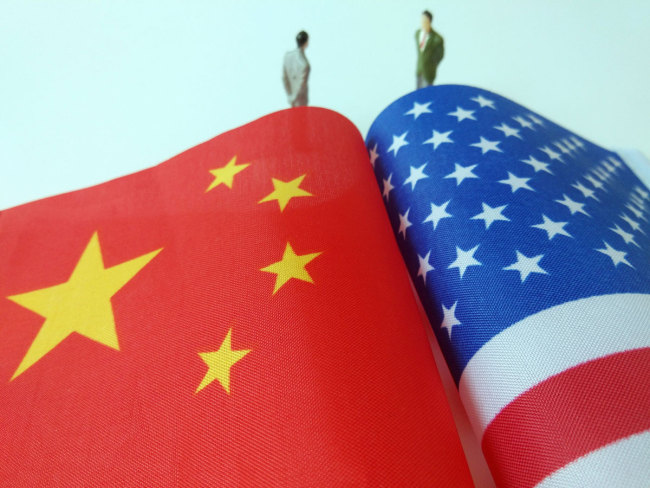China hawk Michael Pillsbury recently suggested that while the United States does not consider China to be an enemy, it will seek to thwart China’s plan to replace the United States as the world’s leader. Some economists have estimated that the size of China’s economy will be triple that of the United States by 2049. Once that point is reached, says Pillsbury, China would then control the United States and turn it into a colony.
Pillsbury’s latest remarks seem to confirm that his paranoia is getting out of control. In his 2015 book “The 100-Year Marathon,” Pillsbury claimed that China was working on a strategy to supplant the United States as the world’s superpower, and to do so by 2049, the one-hundredth anniversary of the founding of the People’s Republic of China. He’s now advanced his thesis to suggest that not only would China replace the US, but it will also turn the United States into a colony. Pillsbury, and politicians who follow his reasoning, assume that China wants to dominate the world, just as their own country does. These views tarnish China’s reputation, as they unfairly turn public opinion against China.
Lies repeated a thousand times do not become truths. The purpose of China’s development plans is to create better lives for its people. China has no interest in replacing any country, and cares even less about becoming the world’s police. Unfortunately, some people in the United States have held on to their Cold War mentality and are anxious about China’s rapid economic development. It bothers them so much that they have allowed their paranoia to grow, fueling anti-China campaigns in order to maintain the supremacy of the United States.
Becoming strong enough to dominate and colonize has never been part of China’s nature. In the early 1400s, a Chinese mariner and explorer journeyed many times as far as east Africa. He visited and traded with 30 countries in Asia and Africa, exchanging goods and goodwill for friendship and prosperity. It wasn’t until decades later that western countries began their own explorations. They, however, only sought to plunder, colonialize and to enslave.
Far from emulating the United States “zero-sum game” mentality, China has always sought to treat all countries equally in its diplomatic relations, regardless of their size, strength and economic status. Under the Belt and Road Initiative, China is championing “win-win cooperation” and is following the principle of achieving shared growth through discussion and collaboration.
In terms of national defense, China has reduced its armed forces by over 4 million within the past 40 years. A white paper released last week highlighted the philosophy of never seeking hegemony, expansion or spheres of influence as the most distinctive features of China’s national defense policy. By contrast, the United States is continually engaged in wars, and its military spending has reached a record 750 billion U.S. dollars. The figure is more than the total amount of the 10 other most-spending countries of the world.
Within the past year or so, the United States has tried many ways to contain China’s development, including detaining high-level managers of Chinese companies with the help of Canada, ordering U.S. companies to cut their supplies to China, and hindering China’s investments.
None of these ploys will work. As the world’s second largest economy and the largest trader in goods, China has a massive market of 1.4 billion consumers. Driven on by the faith and determination passed down through generations, China will never be forced from its path of development by remarks made by people such as Michael Pillsbury, and will reinforce its pledge to make the world a better place.
The following article is taken from the Chinese-language “Commentaries on International Affairs”.




